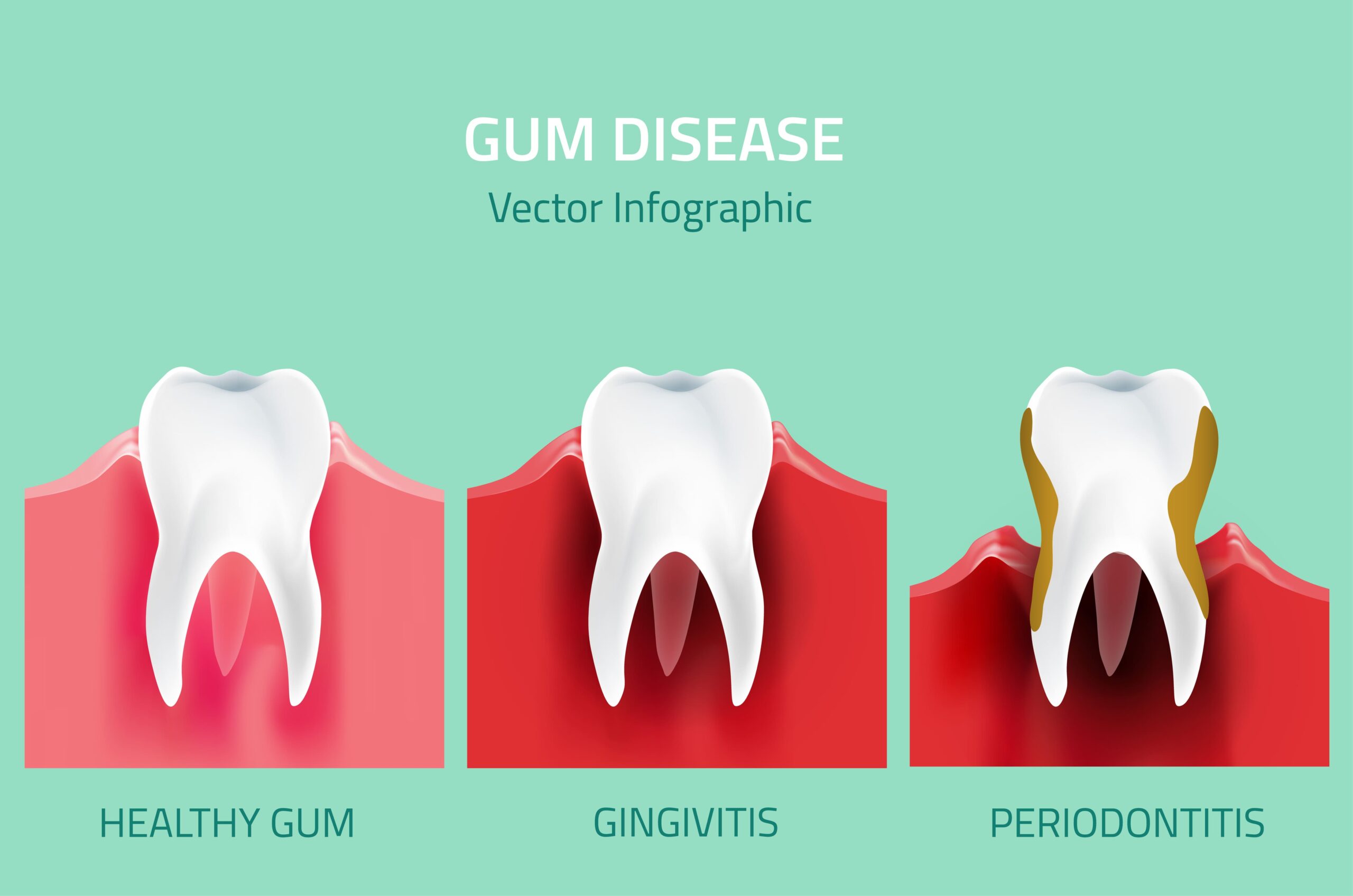There are several forms of gum disease that affect teeth. One of the main reasons for tooth loss is gum disease. Understanding the many stages of this notorious condition and the symptoms that are associated with each one can help you feel less anxious and more prepared to come in and get the treatment you need.
Gum disease is progressive in nature; in its beginning stages, it is treatable, but when it advances, at a certain point, any damage that’s been done is irreparable.
Talk to your dentist in Forest Lake for more information; they will address all your concerns and help you get started on your journey towards recovery.
How Gum Disease Advances
Periodontal disease, often known as gum disease, is brought on when plaque accumulates, hardens into tartar, and then bacteria start to thrive in the space between your gums and teeth. The gums that surround your tooth become inflamed as a result of bacterial growth. This can be treated by a dentist near you.
However, here are the four stages of periodontal disease that are progressive:
Stage 1: Gingivitis
Also known as the initial stage, gingivitis only affects your gums during its first, milder stage, which is typically marked by the following symptoms:
- Expanding
- Inflammation
- Bleeding while using a toothbrush or dental floss
Stage 2: Mild Periodontal Disease
The second stage of periodontal disease is known as mild periodontal disease; although not curable, the illness is still treatable. The infection now spreads to the bone and the germs grow more aggressive, possibly leading to further bone loss.
At this point, periodontal disease cannot be reversed with simple mouth hygiene. Patients may also have probing depths of four to five millimeters in addition to bleeding or redness of the gums and a poor smell.
Stag 3: Moderate Periodontal Disease
Similar signs of mild periodontal disease appear at this third stage; however, probing depths are greater at six to seven millimeters. This extra room raises the possibility that bacteria will enter your bones and, at this point, your bloodstream. Proper care is crucial since your oral health and your general bodily health become even more interwoven.
At this stage, periodontal disease has the potential to become:
- Loss of teeth and bones
- Sensitive gums
- Higher bleeding
- Changing of the teeth
Stage 4: Advanced Periodontal Disease
Periodontal disease can worsen at this more damaging stage, endangering the health of your gums and perhaps your jawbone. Your immune system reacts to the build-up of germs at the base of your gum line by attacking it, slowly but surely eroding any bone or gum tissue in its path.
Periodontal Disease Risk Factors
Without adequate care, this issue can have a long-term negative impact on your general health, resulting in everything from sensitive and inflammatory gums to bone and tooth loss. Periodontal disease can affect people of any age, but there are certain ways to determine if you’re more likely to encounter symptoms based on these factors:
- Chronic renal disease, rheumatoid arthritis, dementia, obesity, metabolic syndrome, and cancer are examples of systemic diseases.
- Genetics.
- Conditions already present (ie: pregnancy and drugs used to treat cancer).
- Lifestyle choices (ie: drinking and using cigarettes).
How to Manage Gum Disease
You can opt for gum disease treatment in Forest Lake, ranging from minimally invasive treatments for gingivitis to surgical procedures for more severe stages of periodontitis:
- Routine periodontal care
- A bone transplant
- Gingivectomy
- Tissue regeneration with guidance
- A gum graft
- Osteoscopic surgery
- Root planing and scaling
In the majority of situations where periodontal disease is discovered early, we can start patients on a maintenance program to put them on the road to a healthy mouth. We can also offer lifestyle advice to help you avoid developing gum disease in the first place.
Struggling with Gum Disease? Make a Dental Appointment Right Away
The earlier you seek out gum disease treatment near you, the more likely you are to preserve your smile and delay or completely stop the disease’s progression. Practicing good oral health habits and staying in communication with your dentist are two simple, yet extremely helpful things when it comes to addressing any dental issue.
If you’re unsure whether you have gum disease, schedule your appointment right away here at Forest Lake Dental. Our team is ready to assist you in any way you need. Call today.

